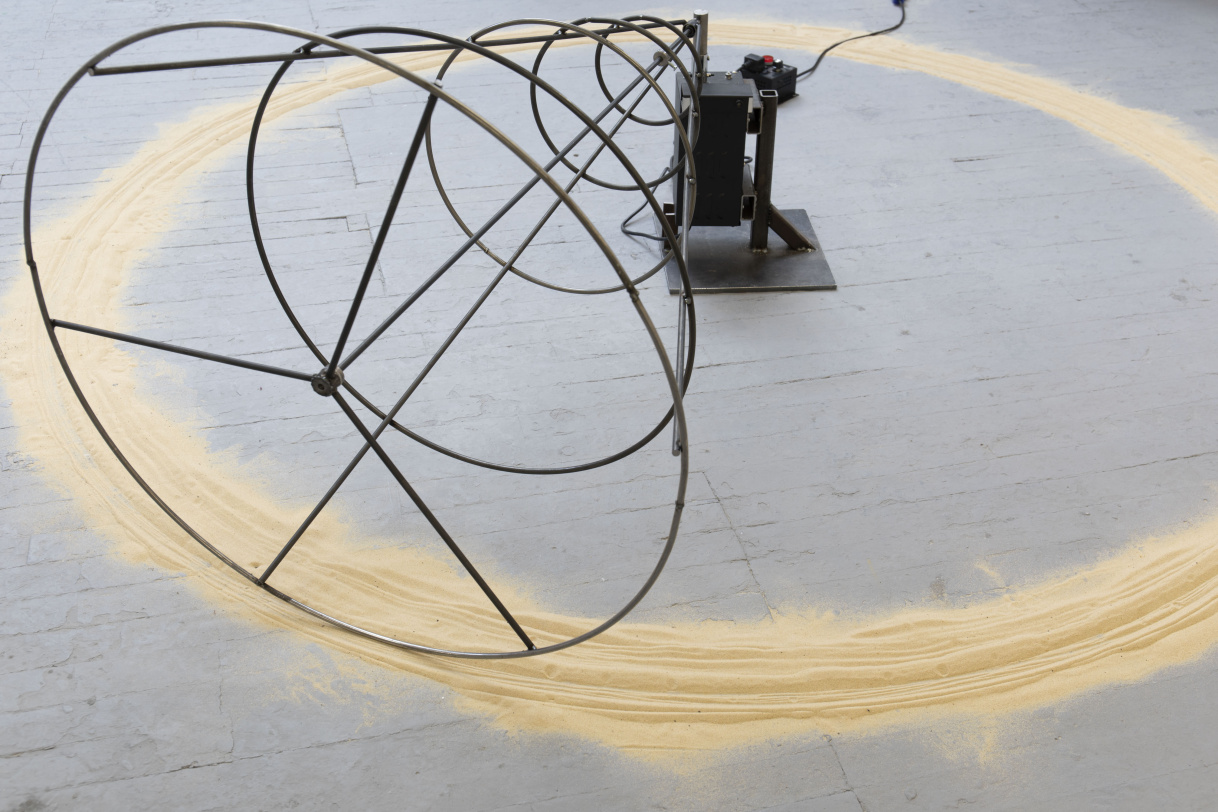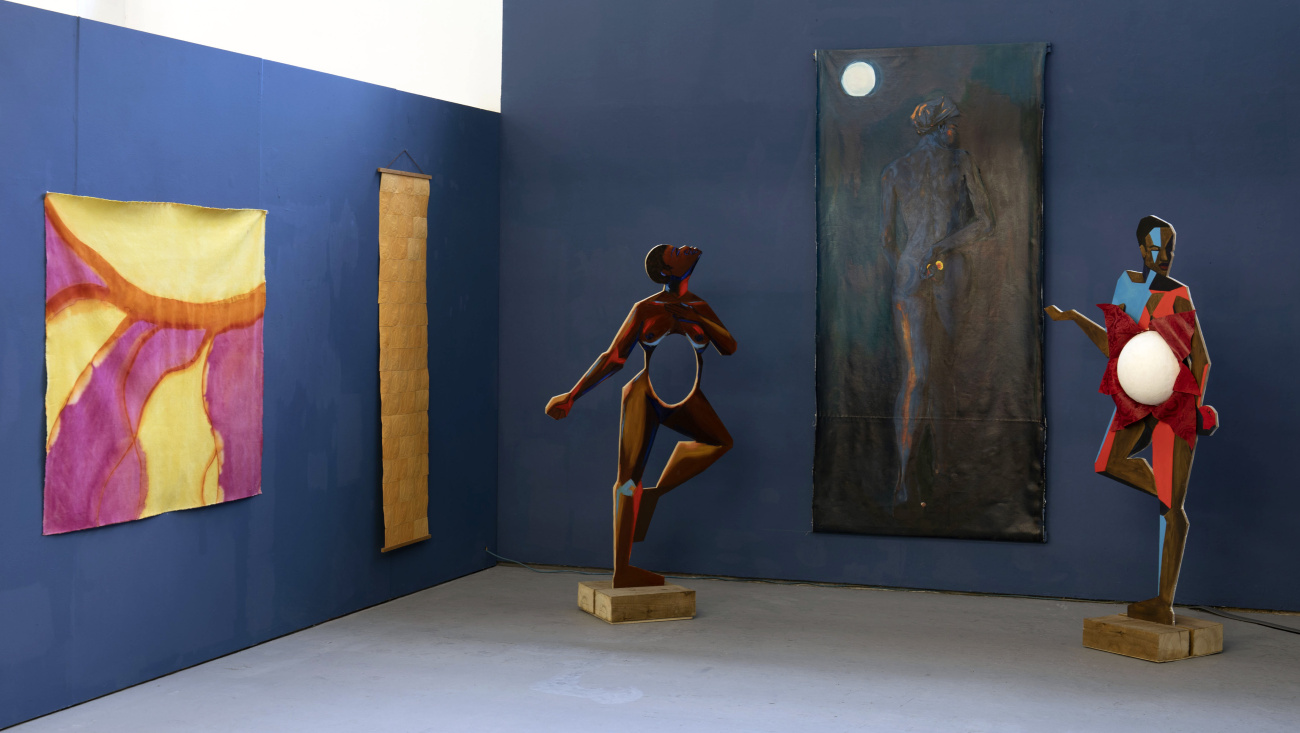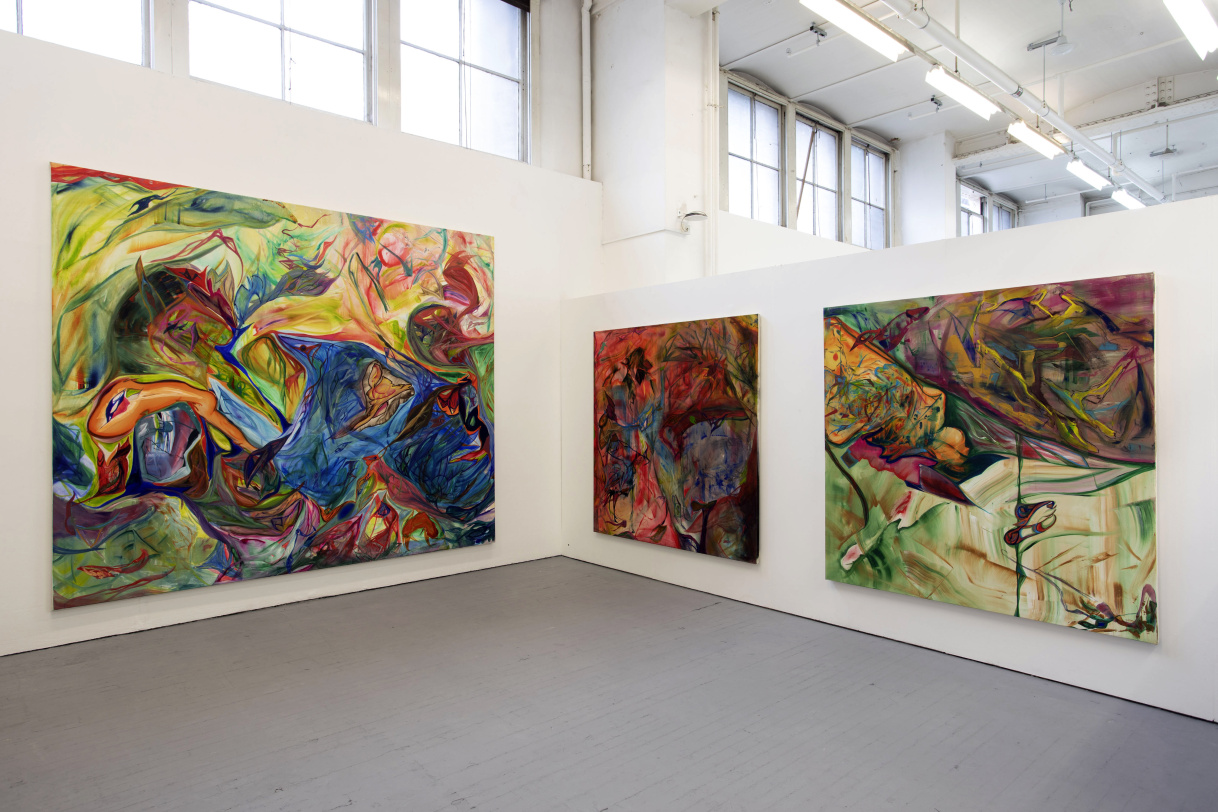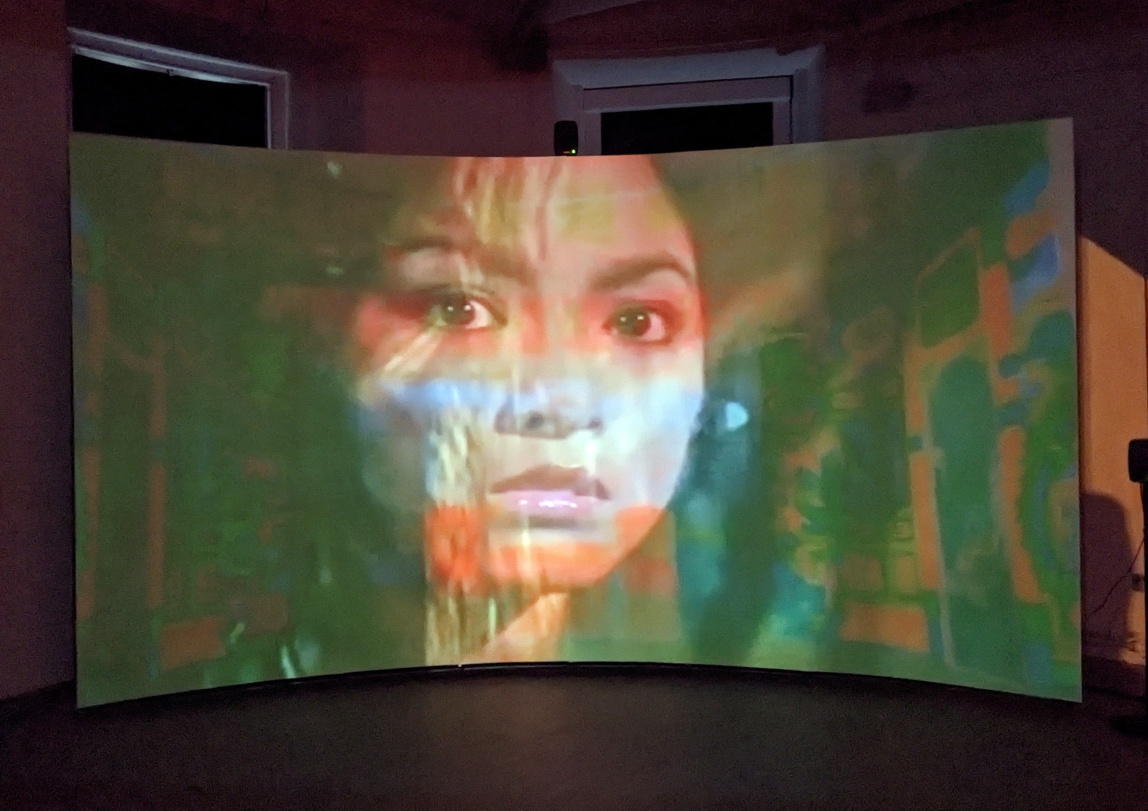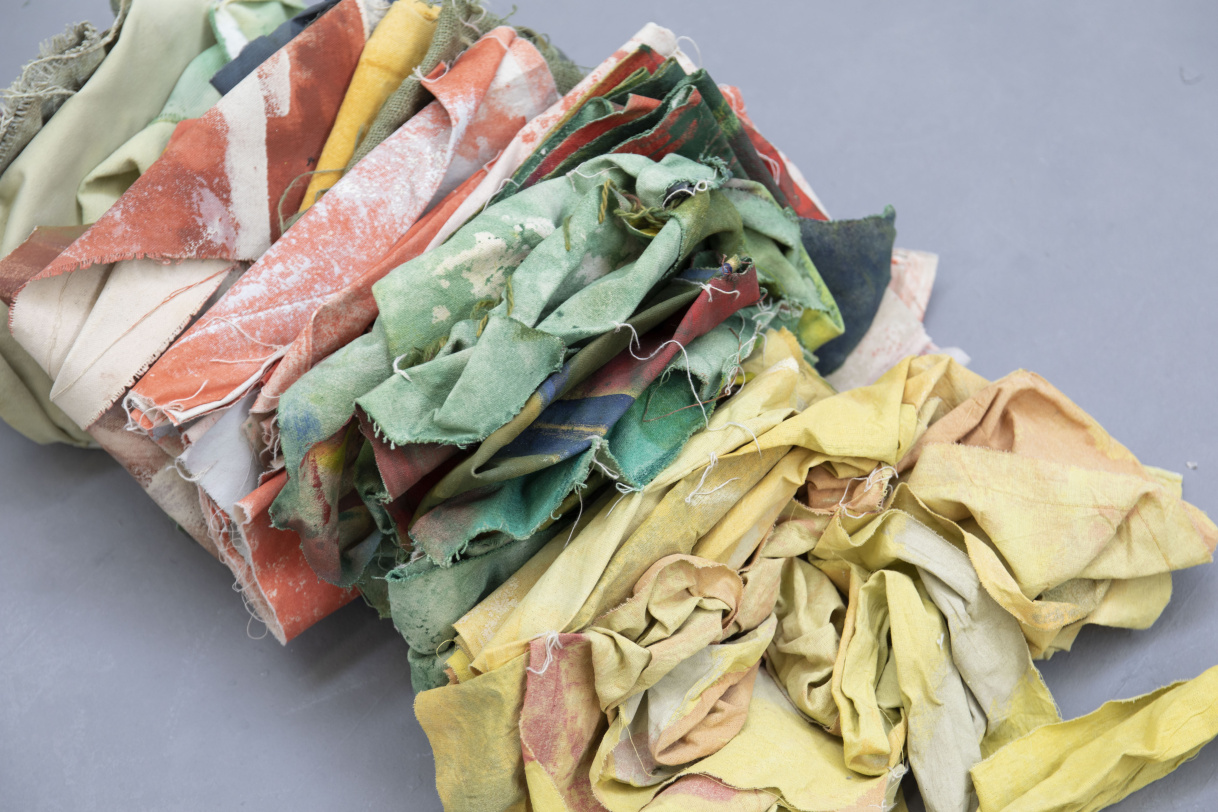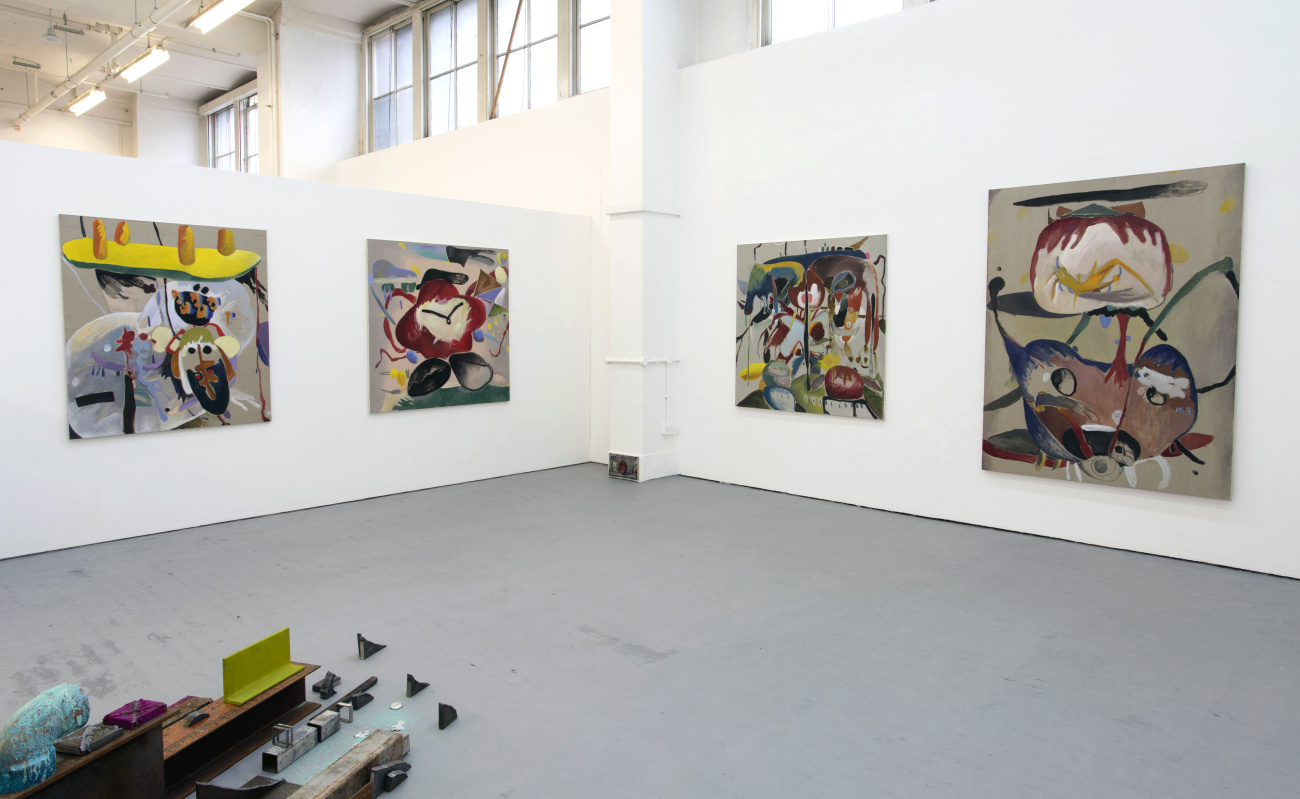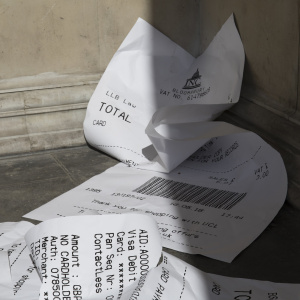BFA Fine Art
This three-year programme comprises three areas of practice: Painting, Fine Art Media and Sculpture, with an integrated critical studies component.
Key information
-
BFA (Hons)
-
3 years
-
Full-time
-
Start: September 2025
-
UCAS code: W101
-
Apply: via UCAS application deadline: 18:00 (GMT) 29 January 2025
Entry and fees BFA
UCL Prospectus: Please read this section in conjunction with the UCL Undergraduate Prospectus
Entry requirements: see the UCL Undergraduate Prospectus
Fees and funding: see the Funding for students on undergraduate courses.
About
Our three-year practice-based degree in Fine Art is themed around fine art media, painting and sculpture. At the end of term 1, you will select one area and are expected to develop your own work with tutorial and technical assistance from a specialist team of academic and technical staff.
Aims
The BFA Fine Art programmes aims to:
- develop the individual visual intelligence each student brings with them to the School
- develop in each student a critical awareness and understanding of fine art and its contexts
- provide the intellectual and practical resources to enable each student to realise his or her creative potential as a professional artist
- provide studio-centred teaching and a forum for debate through which students become increasingly professional and articulate in their questioning
BFA Images
-
Installation photo, Slade BA/BFA Degree Show 2023, Eve Bell, 2023
Photo: Thomas Jenkins/Sarah Pickering
-
Installation photo, Slade BA/BFA Degree Show 2023, Maya Simms
Photo: Thomas Jenkins/Sarah Pickering, Slade School of Fine Art
-
Installation photo, Slade BA/BFA Degree Show 2023, Mannat Gandotra, 2023
Photo: Thomas Jenkins/Sarah Pickering, Slade School of Fine Art
-
Installation photo, Slade BA/BFA Degree Show 2023, Shi Yun Teo, 2023
Photo: Thomas Jenkins/Sarah Pickering, Slade School of Fine Art
-
Installation photo, Slade BA/BFA Degree Show 2023, Ruby Waterhouse, 2023
Photo: Thomas Jenkins/Sarah Pickering, Slade School of Fine Art
-
Installation photo, Slade BA/BFA Degree Show 2023, Alessia Marullo, 2023
Photo: Thomas Jenkins/Sarah Pickering, Slade School of Fine Art
-
Installation photo, Slade BA/BFA Degree Show 2023, Alice Marshall, 2023
Photo: Thomas Jenkins/Sarah Pickering, Slade School of Fine Art
-
Installation photo, Slade BA/BFA Degree Show 2023, Erna Mist, 2023
Photo: Thomas Jenkins/Sarah Pickering, Slade School of Fine Art
-
Installation photo, Slade BA/BFA Degree Show 2023, Tianyu Zhou (paintings), Nick Aliberti (sculpture), 2023
Photo: Thomas Jenkins/Sarah Pickering, Slade School of Fine Art
Practice-based programme
Tutorial system
Each student has a personal tutor within their year group and meets at least twice per term. One-to-one tutorials can be arranged, subject to availability, with other Slade tutors from across the undergraduate, graduate and PhD programmes.
Content-led seminars
Content-led seminars are arranged around themes, such as photography. Some are pre-organised, with some slots left empty to respond to students’ current interests. These seminars aim to relate the students' practice to specific ideas and subjects to develop critical awareness.
Studio Crits
All students will take part, both as observers and as presenters in studio crits. The crits provide a forum for students to present their work to students and tutors across all the years and subject disciplines. The aim is to relate the work to a broad context beyond the year groups and subject disciplines in which it is produced. The crit also aims to develop students' understanding of how to locate, place and present their artwork for exhibition, performance or public setting.
Core programme
All Year 1 BFA Students must complete the Core Programme, which is led by tutors from the History and Theory of Art programme, with contributions from studio staff. The Core Programme introduces students to key histories and theories that have shaped the making, reception and circulation of art from the mid 19th century to the present. This provides a solid grounding from which to begin the Critical Studies programme for BFA students.
Visiting artist programme
Each area has a programme of visitors including artists, critics and curators who give tutorials, lectures and participate in seminars. Recent visitors include: Recent visitors include: Valerie Amani, Alvaro Barrington, Adham Faramawy, R.I.P. Germain, Andrew Pierre Hart, Vlatka Horvat, Hannah Catherine Jones, Rachel Jones, Christopher Kirubi, Phillip Lai, Ghislaine Leung, Rene Matic, Emily Moore, Goia Mujali, Milika Muritu, Naira Mushtaq, Harold Offeh, Shenece Oretha, Janette Parris, Jaimini Patel, Freddie Powell, Reman Sadani, Prem Sahib, Zeinab Saleh, Jenkin van Zyl, Jala Wahid, Ellie Wang, Gray Wielebinski, Lynette Yiadom-Boakye and Vivien Zhang.
Painting
Tutors from the undergraduate painting aim to enable each student to pursue their ideas in and around painting in all its forms in the most committed, imaginative and experimental way. Work may manifest itself in a wide variety of different mediums and materials. Interaction with each other is an essential aspect of the painting course. One-to-one tutorials are a crucial part of the course and regular seminars and crits take place where students are encouraged to discuss and present their work to fellow students and staff. Workshops are programmed to introduce painters to stretcher-making and materials. An integral part of the course is the extensive programme of visiting artists and critics, who give tutorials and lectures and participate in seminars.
Sculpture
The undergraduate sculpture academics embrace an expansive idea of sculpture towards the expression and exploration of ideas in space, using material or dematerialised processes. We encourage experimentation, invention and intervention which may incorporate object making, installation, the uses of appropriation and the found object, drawing, still and moving image, sound, text, printed matter and performance. Staff and students engage in rigorous conversation, exploring and developing the ideas generated by student activity, and the subject of sculpture and its possibilities. We consider production in its broadest sense, the contexts of space and place, audience, process, temporal and haptic encounter through the discussion of work, the contexts of art practice and relevant historical and contemporary models of thought. Field visits are made to galleries, studios, factories and sites. Technical support is provided in the use of wood, metal, plastic, ceramics, construction, casting, carving and moulding techniques, moving, still and 3D digital image, sound and printed media.
Fine Art Media
The undergraduate fine art media tutors encourage a diverse approach to exploring media and ideas. The area allows students to specialise and develop expertise in a chosen medium or a combination of approaches that test the boundaries and relationships of different media. Students can develop their practice through a broad range of technologies and approaches that include film, video, photography, print, electronic and digital media, drawing, performance, sound, object-making, installation and the production of texts and publications. An experimental and critical approach is encouraged, and a wide range of conceptual and practical expertise is provided by staff who are practitioners specialising in the field. Technical tuition and theoretical and philosophical discourse relevant to the area are introduced to students through workshops, gallery visits and seminars, when permitted.
Critical Studies in the BFA
The critical studies component of the three-year BFA Fine Art programme is integrated into the undergraduate practice-based course and the tutorial system. Within this component, students’ understanding of critical studies will be developed through their participation in seminars, workshops, tutorials and gallery visits. Critical studies is designed to provide students with the ability to reference their work within a relevant contemporary and historical cultural context. As well as helping them to develop verbal and written skills to present and contextualise their artworks. It is supported in the first year by an introductory Core Course into the contexts and histories of art practice, and a Critical Studies course in years two and three.
Assessment and Examination
Practice-based work
Students receive an annual tutorial report and present a portfolio of practice-based work for assessment at the end of each year. Students must demonstrate development of their practice, critical awareness, and their participation and contribution to the programme. These end-of-year assessments lead up to the final-year degree exam and progression to a career as a practising artist.
The degree exam contributes 100% of the final degree mark for BFA Fine Art students.
Critical studies in the BFA
Critical Studies is assessed in years one and two and must be passed in order for the student to progress to the following year of the programme. Students are required to identify and articulate their works’ critical context and practical concerns by first making a verbal presentation on their work, and then developing this into a written text at the end of their Critical Studies course.
Fees and funding
This should be read in conjunction with the UCL Scholarships and Funding web pages and the Slade’s own Fees and funding page.
Tuition fees
UCL’s tuition fees are set annually and cover registration, tuition and supervision for each academic year, or part of an academic year that you are enrolled. Tuition fees may be subject to an annual increase. The fee does not cover artists' or other academic materials. Current fees and further information about fee status, how to pay and living expenses can be found on the UCL Money pages.
BA/BFA related
-
BA/BFA Fine Art admissions
Find out more about admissions and applications for our undergraduate courses in Fine Art.
-
BA/BFA Fine Art FAQs
Find answers to frequently asked questions about our BA and BFA in Fine Art.
*Please note: they do not apply to the new BA in Art and Technology. -
-
Portfolio upload instructions
You will receive an email from UCL inviting you to submit your portfolio after you have submitted your application. The video below will help you with the portfolio upload process.
-
-
Fees and funding
Find out about fees funding, scholarships, prizes and bursaries.
-
Study abroad
We welcome students from all over the world to its degree programmes. We also provide opportunities for international students at all levels to study at the Slade for shorter periods...
